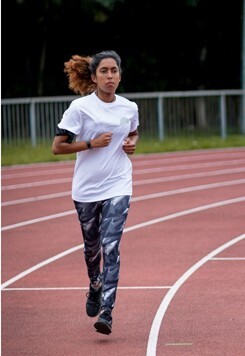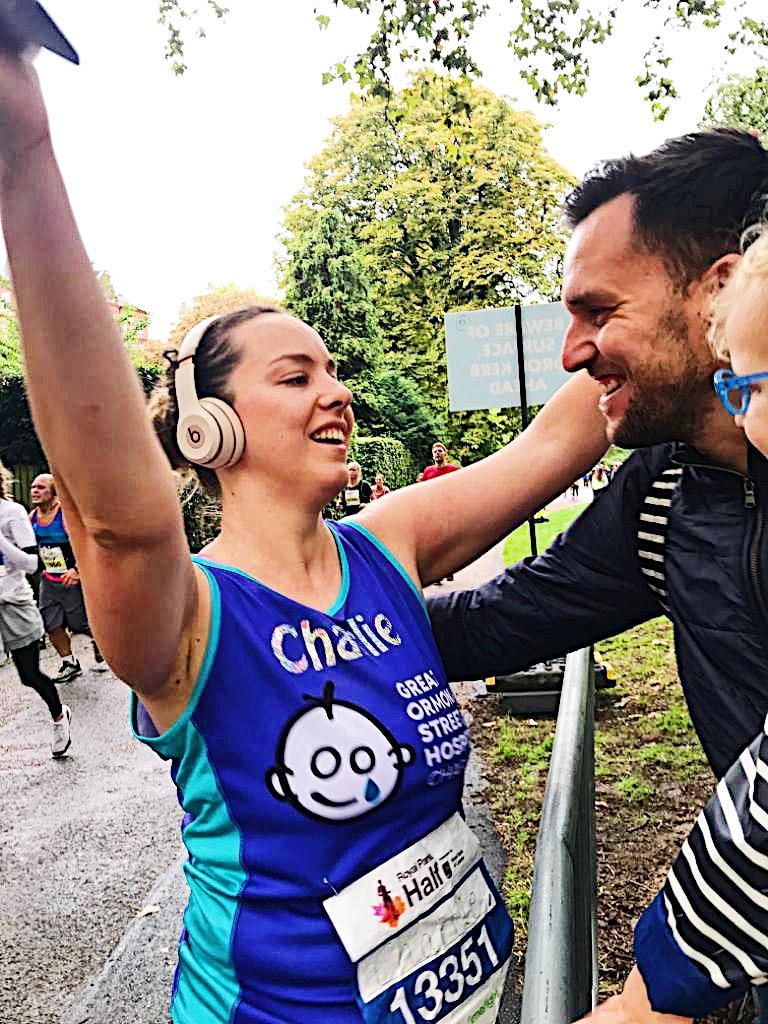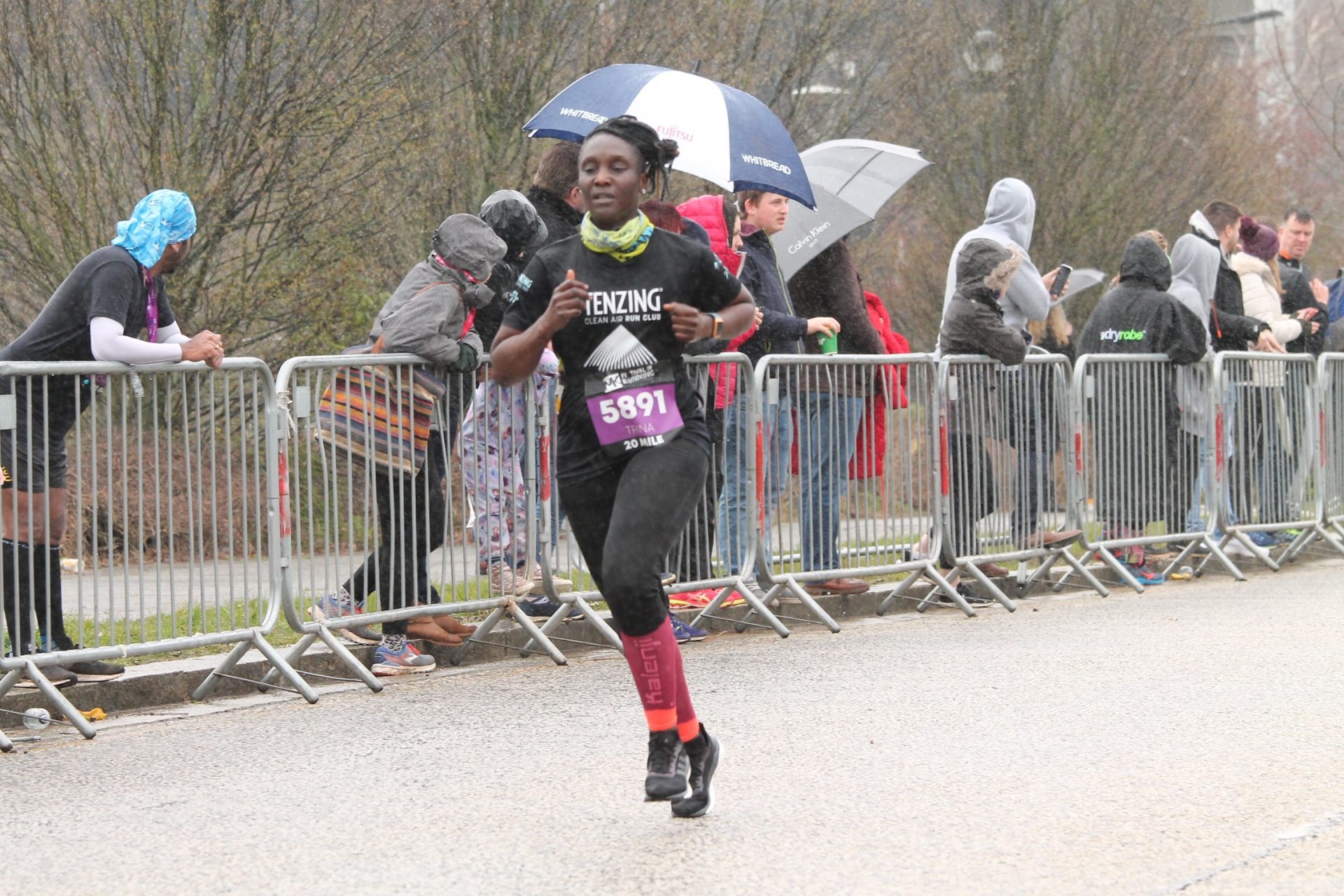“Running grateful” might sound like a bit of a naff concept but there are major benefits to running with gratitude, writes PT and runner Mollie Millington. Here’s how to transform your run into a mindful experience.
Most runners, whatever their experience, would argue that running is as much a mental challenge as it is a physical one. Few of us, however, actively go out of our way to turn our runs into active meditations.
When I was invited to run a marathon over 24 hours without sleep, I took a breath to consider my options.I was towards the start of a 16-week marathon training plan and, being prone to injury, wasn’t sure how my body would cope with a rapid increase in mileage.But I was also curious because this invite demanded that I run grateful.
That might sound a little naff but given the past 18 months, I for one was keen to experience something other than the existential dread that has come to personify living through the pandemic. So, I said yes.
You may also like
Running tips: learn to enjoy running with this simple mental health hack
What is “grateful” running?
When I disembarked from the race bus in Essex carrying a huge rucksack, camping chair and a lot of Diet Coke, I had no idea how the next 24 hours would go. Entering Ashton Playing Field, I saw a few other people with luggage milling about the track and a handful of people pitching a giant bell tent. Red Bull and Moju ginger shots were on ice and there was a nervous energy in the air.
Mark White, the founder of Run Grateful, is a 37-year-old social entrepreneur who lives in Hertfordshire. White’s gratitude practice started 18 years ago when he was at rock bottom. To get out of the slump, he began studying gratitude and incorporating it daily. The uncertainty that came about as a result of the pandemic persuaded White to challenge his mindset through running.
He pledged to run a marathon in 24 hours, starting off with a 5K and then adding another mile each hour.While the physical challenge itself is not new, White added in his gratitude practice.Each mile would be dedicated to or focused on something he was grateful for, and the end result was transformational.With that, the idea for Run Grateful was born.
Running to boost confidence

The Grateful Mile movement has been growing online since June last year, when a challenge gripped social media. Fotine Staddon, 33, a yoga teacher from Ascot, took part in it and found that adding gratitude practice to her running made each run more fulfilling. “Gratitude has influenced my running a huge amount as now when I run, I always have something to be grateful for. It has led me to becoming confident with who I am and what I have to give to others,” said Staddon.
When she arrived as Ashton Playing Fields the same morning as I did, she had never met any of the other participants and was full of nerves. “I didn’t know what to expect,” she said, but soon found that adding gratitude to her running practice made her “much more confident in who I am [and] has given me a sense of freedom.” Gratitude helped her feel more at ease when meeting the other runners. Staddon even had the confidence to teach a short yoga session to her new friends in the middle of the track early on in the challenge.
The twenty people who took part in the September launch of Run Grateful were from different areas of the UK. It didn’t take long until we were chatting like old friends each time we walked to the start line. For the inaugural Run Grateful challenge, one of White’s good friends, Kevin Hempsted, was on hand to help participants process the emotions gratitude (and fatigue) brought up through the cold and rainy night.
Running to improve mental health

Hempsted is a professional counsellor and although he didn’t complete all 26.2 miles, he did his fair share of walking around the track, listening to the stories people needed to share in confidence. Before the start of each mile, runners also took it in turns to share something they were grateful for with the group. One woman dedicated each mile of the event to a different woman in her life for whom she was grateful. Another talked about being sober for eight years and how grateful he was to be able to take part in the challenge after nearly losing everything. Someone thanked the grandparents who raised him while another was grateful that the childhood diagnosis he received that he would never be able to walk –let alone run –was wrong.
There were many emotions as the hours wore on and the miles added up. Cold, wet weather and no sleep made the conditions tough for everyone taking part. I started to question if I could complete the challenge, if I had enough to be grateful for. But as the sun started to come up and the dawn chorus began, the veil of negativity was lifted and I began to see all the things to be grateful for in the daylight.
Learning to Run Grateful
Run Grateful has organised a few formal and informal virtual events since September 2020. In December, for example, there was a challenge in which participants walked or ran a mile each day. The website provides information about how to complete your own 24-hour Run Grateful challenge, or you can join an IRL event. If you decide to go it alone, the Run Grateful team will send you a race bib and a gratitude pack if you take part.
The great thing about Run Grateful is about how simple the premise is. At any point in your training, you can dedicate your miles to something or someone who you’re grateful for.
So far, the Run Grateful movement has reached people in over 50 countries. Many of the runners who take part share their photos on social media after their grateful mile in a bid to demonstrate how gratitude can completely shift one’s life perspective towards one of positivity, personal growth and an enhanced connection to others.

5 tips for incorporating gratitude into your running practice
Start with a meditation or affirmation. Staddon starts her runs with five minutes of meditation to set her intention and focus on what she is grateful for. Run Grateful isn’t prescriptive in how you acknowledge your gratitude. It is up to you to find a way to make it work. An affirmation such as “I am blessed, I am grateful” can also be what you focus on as you run. Keep going back to it when things are tough – whether when out on a run or in daily life.
Use self-talk. Trina Dawkins, 41, an assistant head teacher from London, also took part in the Run Grateful launch event. She has been running for six years but only started bringing in a gratitude aspect after meeting White. Dawkins now uses her runs to focus her mind on purposeful thoughts. She finds when her run isn’t going to plan, the gratitude practice allows her to refocus and appreciate the other things in her life that are going well. Dawkins also uses self-talk to remain positive. She says: “Much of your self-talk depends on your personality. My personality has always been: ‘What’s the worst that can happen? Just go for it.’” It might take a while for your mind to let go and focus on the things you are grateful for. You just need to trust the process.
Leave the headphones at home. Try to enjoy the natural sounds around you as you consider the good things in life during your run. Another person who took part in the 24-hour challenge is Sufia Rahman. Rahman only started her running gratitude practice in September and, since then, she’s been spending her daily mile thinking of a person who she is grateful for or something positive that happened that day. Gratitude has inspired Rahman to run more consistently, rather than wait for perfect weather. The improved mindset her gratitude practice brings helps Rahman finish her run by giving her a mental boost.
Get used to giving thanks in your daily life, not just on your runs. The pandemic has given us many reasons to be negative but that is all the more reason to show some positivity with the world around you. Start to tell the people in your life you appreciate them. Look at the scenery where you are and take in the good that surrounds you. Social entrepreneur Charlie Day has found that sharing her gratitude has strengthened her relationships because she is happier within herself. Day feels that if you incorporate gratitude into your daily life, you will become more content. “You might not notice it at first as the progress can be slow, but then you will look back and realise how far you have come,” she explains. “If you look for gratitude, you will find it.”
Sign up for the challenge. The easiest thing to do is to just give it a try. Start following the hashtag #1gratefulrun for inspiration and to connect with the Run Grateful online community. Why not set yourself a 30 day walk or run streak goal? You have nothing to lose and everything to gain if you make every mile a grateful mile.
Give your running a boost by signing up to the four-week Strength Training for Runners course on the Strong Women Training Club.
Images: Trina Dawkins/Charlie Day/Sufia Rahman
Source: Read Full Article
